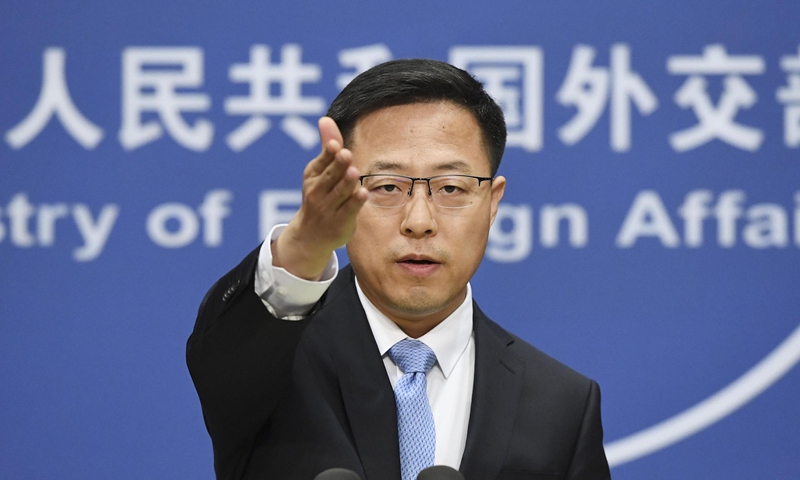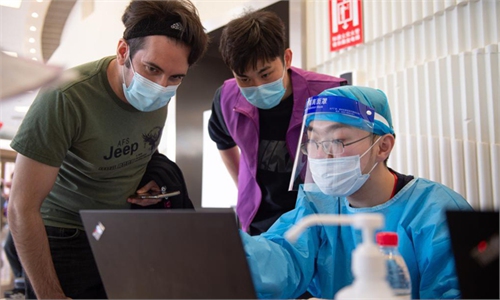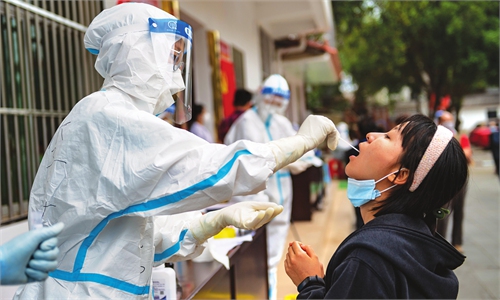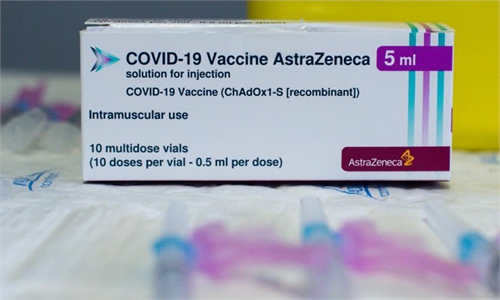
Zhao Lijian
The so-called open letter written by 24 researchers from Europe, US, Australia and Japan on a new probe into COVID-19 origins is merely aimed at pressuring the World Health Organization and members of its expert team, and the COVID-19 origins-tracing work is indeed being hindered by politics, not from China, but from certain countries including the US, a Chinese Foreign Ministry spokesperson said on Thursday.
The open letter released on Wednesday by 24 scientists and researchers from Europe, the US, Australia and Japan criticized the joint China-WHO study into COVID-19 for providing no credible answers about how the pandemic began, and claimed the work was tainted by politics, media reports said.
Chinese Foreign Ministry spokesperson Zhao Lijian said on Thursday that the work of probing the virus origins was indeed tainted by politics, not from China, but some individual countries including the US. "The purpose of the so-called open letter is self-evident," he said.
Zhao said he still remembers clearly that the last so-called open letter by scientists was published on March 4, and done by virtually the same group of people. It was also drafted by Jamie Metzl, senior fellow at the Atlantic Council think tank and previously serving on the US National Security Council and State Department, prior to the WHO releasing its virus origins-tracing report, while this one was released after the WHO issued its report.
Some netizens discussed that Metzl's role already demonstrated the letter is driven by geopolitics, not science. The other organizer is the data scientist in New Zealand, Gilles Demaneuf, while some of the other signatories do not have a medical background in data science, public affairs and security.
"Whether they uphold a scientific and professional attitude and offer advice and suggestions for the origins-tracing study, or are just changing the form but not the content, and only trying to make a presumption of guilt for a specific country, that is clear to all," Zhao said.
Some individual countries including the US are politicizing the issue, disrupting the cooperation between China and the WHO, smearing China and openly challenging the independent and scientific research by scientists. This harms global cooperation on virus origins-tracing and global efforts in fighting the epidemic, Zhao noted.
As for lab leaks, Zhao said field visits to China have shown that the virus being leaked from Chinese labs is extremely unlikely, but it is another story if clues and evidence were found in the rest of the world.
Zhao expressed hopes that countries including the US can adopt a scientific and cooperative altitude to working with the WHO on virus origins-tracing and invite WHO experts to conduct scientific research in their countries.
Russian Security Council Secretary Nikolai Patrushev said in an interview with the Kommersant newspaper, "US-controlled biological laboratories appear here and there in the world on a permanent basis. Strangely enough, they appear mainly near Russian and Chinese borders." He said Russia has every reason to believe the US is developing biological weapons in labs.
Concerns from Russia over militarized bio-tests carried out by the US is shared by many countries, Zhao said on Thursday, calling on the US to respond to the concerns of the international community and make comprehensive clarifications on biological militarization activities within and outside the US, and stop blocking the establishment of a verification mechanism by the Biological Weapons Convention.
According to reports, the US has set up 16 biological laboratories in Ukraine alone.
Zhao asked, "Why does the US build so many laboratories all over the world? What activities does the US military carry out in these laboratories and Fort Detrick base? Why does the US exclusively oppose the establishment of a verification mechanism under the Biological Weapons Convention? Are there any reasons why the US does not dare to allow these laboratories and bases to undergo international inspections?"
Global Times



